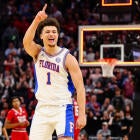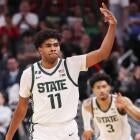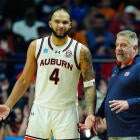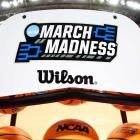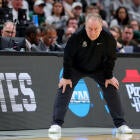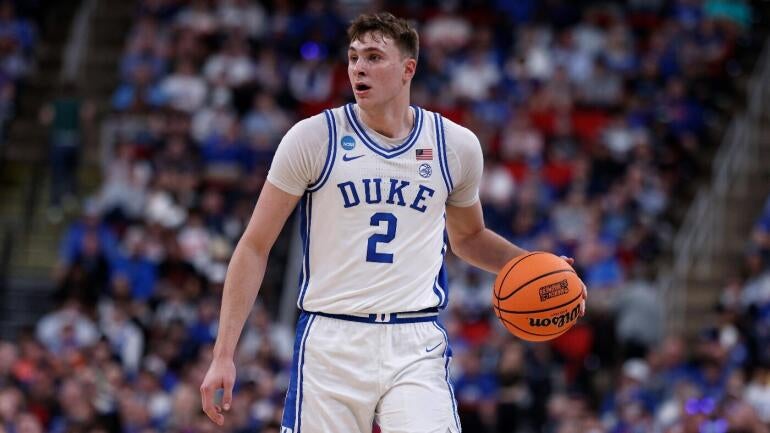
Cooper Flagg has one of the more unique NIL situations in college sports having signed a sneaker deal with New Balance but having to play in Nike's while at Duke. We don't often see an athlete to go to a school with a different sneaker and apparel sponsor than one they are signed to, because the immediate return on investment for a brand signing a player is diminished if they're not wearing that brand on the court.
Flagg is a unique case, though, because New Balance signing him was an investment for the future. The connection between the player and brand was obvious: he's the first big basketball star to come out of Maine, where New Balance has multiple factories. That gave them an in to land one of the biggest young stars in the sport, and they were willing to effectively sit out a year of his career in college to have him as the new face of their basketball roster when he arrives in the NBA as the presumptive No. 1 overall pick this June.
Ahead of Duke's Sweet 16 matchup with Arizona on Thursday night in Newark, Flagg was asked about playing for a Nike school and whether he wishes he was able to wear New Balances instead.
"Well it's obviously a tough situation," Flagg said. "I love New Balance, but Duke is with Nike, so we have to do that for now."
Flagg pretty deftly sidesteps the question, making sure to show love to his sponsor but not really ruffle feathers on the Duke side with his answer. In that regard, he's already a pro, but it does illustrate one of the strangest relationships in the current world of NIL.
Sneaker companies have long paid big money to sponsor schools so that their players and coaches wear their apparel, but now players can go work out a deal on their own, even if it's just to appear in commercials, and wear that brand off the court (and on social media). On the women's side, Hailey Van Lith is in a similar situation playing for a Nike school at TCU while being signed to adidas. It's likely this will become a more familiar sight at the collegiate level.
The relationships between schools and sneaker companies have always been used to develop rapport and loyalty with players that can lead to endorsement deals at the pro level. The landscape has changed, and now we see players establish themselves as stars at a young age and develop their own following on social media off the court. If that following is big enough and they have strong pro potential, it can make them valuable enough to brands to sign them even if they won't be wearing their gear while playing in college.
![[object Object] Logo](https://sportshub.cbsistatic.com/i/2020/04/22/e9ceb731-8b3f-4c60-98fe-090ab66a2997/screen-shot-2020-04-22-at-11-04-56-am.png)









